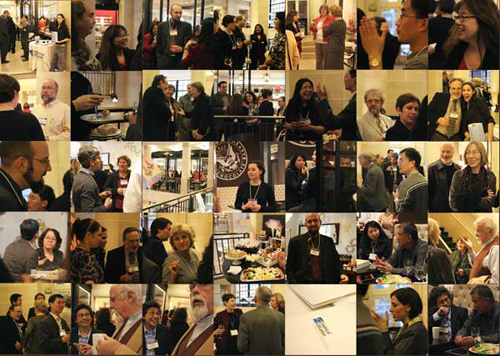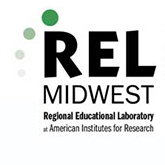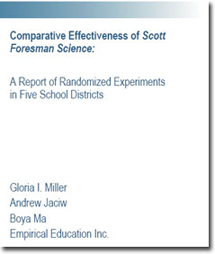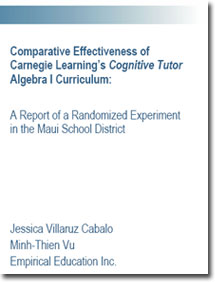Maui Schools Sign Subscription Agreement for Empirical Education Research Services

Empirical Education will be providing research services to the Maui School District through an innovative subscription arrangement for MeasureResults™, an Internet-based research and consulting offering. The initial application of this service will be investigations of the longer term impact of the Cognitive Tutor program that was implemented under a Math and Science Partnership program grant.
The company’s MeasureResults service is a response to the ever increasing demands on school systems to validate their program and spending decisions based on the analysis of solid data. Most districts do not have the staff and facilities to set up data and run complex statistical analyses. In Maui, the service will take advantage of the sophisticated data warehousing capabilities being put in place statewide. MeasureResults is designed to simplify the technical and logistical steps of conducting experiments by building powerful and verified analytical techniques into an uncomplicated framework. The offering includes consultative services on research design and web-based interfaces to gather data, automate analysis, and generate reports. MeasureResults is bundled with technical support that includes review of all analyses and reports by trained statisticians.








